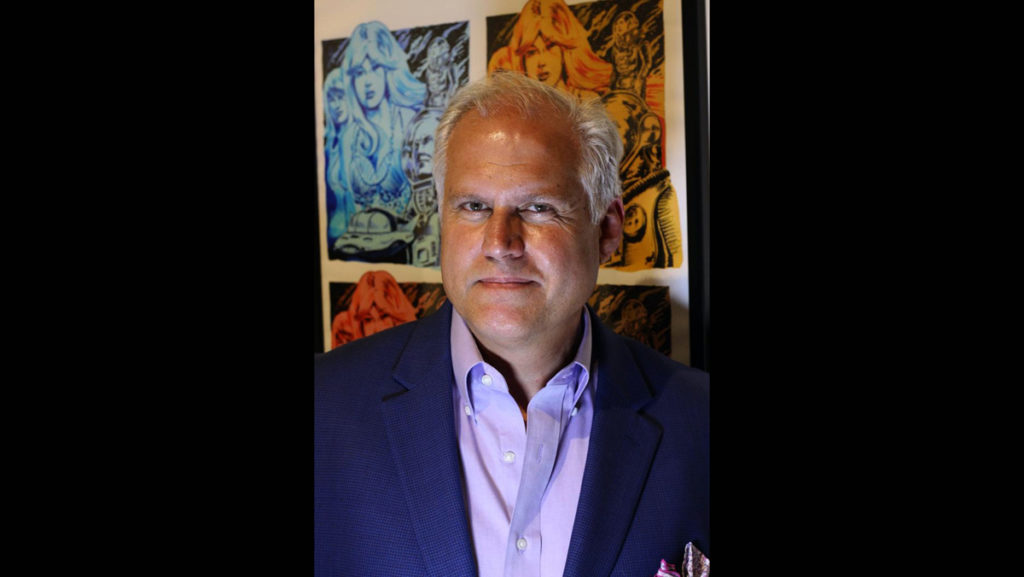Ed Catto, professor in the Ithaca College School of Business, hosted a virtual panel at Comic-Con about the role comic books and pop culture play in academia.
At the panel, “Comics on Campus: Fandom at Academia,” the panelists — including academics from Syracuse University, Columbia University and University of Oregon — discussed how professors analyze and use events in pop culture as a learning tool for students. The convention was set to be held at the San Diego Convention Center over the summer but was conducted online because of the COVID-19 pandemic.
Opinion editor John Turner spoke with Catto about the intersections of pop culture and academia, as well as how pop culture may be affected by the pandemic.
This interview has been edited for length and clarity
John Turner: Did you learn anything at the panel that stood out to you?
Ed Catto: I learned that at all these colleges and universities, there seems to be a thirst and excitement for pop culture classes from students. A lot of the smart administrators are incorporating that into their curriculum. It goes beyond just saying, ‘Oh, let’s have a course about comic books and do the history of Spider-Man.’ Instead, the schools that really seem to be smart about it are using this as a platform for understanding either bigger concepts or business concepts, to use those as ways that reinforce and allow students to learn big concepts that will be fascinating in the here and now and also super helpful to them as they go and continue into the early stages of their careers.
JT: How do you implement what you’re learning at these panels into your teaching?
EC: A lot of different ways. One, it might be bringing the topics in for discussion. Two, it might be having students watch the panels. Three, it might be bringing the panelists in to speak with the students. A lot of these panels are a great opportunity to kind of see what people are thinking about at any given time. … Being able to be on that bleeding edge of people’s issues and concerns and problems and then bringing it into the classroom is a fantastic opportunity. … We’re using current events and analyzing what’s happening in real–time. My syllabus is always kind of changing, and we’re pivoting and incorporating new things. Also, the nice part about pop culture is that it’s an industry where you can get to some of the movers and shakers and get them to speak to the class. So we have a phenomenal roster of guest speakers that come in and spend their time and talk to the students.
JT: How do you think academia and pop culture intersect?
EC: Universities and colleges are using it as a way to talk about creativity, to talk about storytelling, to talk about business concepts, like small business and marketing. So much of pop culture falls under the brackets of entrepreneurism and small business.
JT: What interests you in this topic?
EC: I think, recently, the thing that’s been interesting to me or that has impressed me is the courage and the bravery that so many of these creatives and small entrepreneurs exhibit. People are trying to figure out new ways to do things and new ways to react, trying to uncover opportunities, not sitting around lamenting on how rotten things are but working hard to figure out things. So that might be virtual conventions and trade shows that are popping up. It might also be creative efforts that independent retailers are doing, or it might be just some of the cool things that creatives like artists and writers are working on. That ability to kind of figure out ways to thrive and survive in difficult times is the part that really excites me.
JT: How do you think that COVID-19 will shape this field going forward?
EC: We can see so much of it [in] the things that we’re talking about right now. So you have a big movie, like Wonder Woman, that’s all based on getting people into theater seats. To release it on a streaming platform doesn’t make sense to recoup the costs, let alone make the projected revenue that they were expecting. So it’s difficult times in ways that were unexpected and unplanned for. People are trying to figure it out. That’s part of the story. We’re in the middle of a story that we’re all watching unfold. I wish I knew how it would all turn out. But I think there’s a lot to learn every step of the way.














